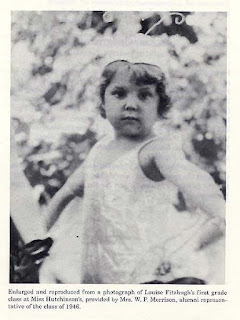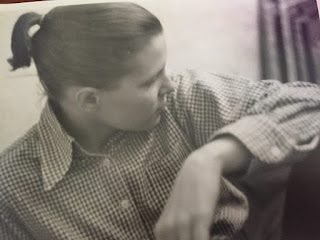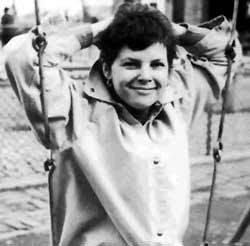Couldn't even finish it. Nothing happens. Except menstruation.
Talk not with scorn of Authors- it was the chattering of the Geese that saved the Capitol. Coleridge
www.seanenright.com
seanenright.blogspot.com
Monday, February 28, 2022
Wednesday, February 23, 2022
The Little Drummer Girl by John Le Carre
Mind numbingly long and complicated acting-within-acting-within-terror-cells. May or may not finish it. Awesome early 1970s Greece slutty hippies, which is something.
Friday, February 18, 2022
Sunday, February 13, 2022
SOMETIMES YOU HAVE TO LIE: The Life and Times of Louise Fitzhugh, Renegade Author of Harriet the Spy By Leslie Brody
Interesting if thin biography of Fitzhugh. There was an earlier one from 1991 by Virginia Wolf that is apparently more scholarly. This one is decidedly not. Brody does a lot of speculation about what Harriet might have done, whom she might have, how she might have felt. She does talk to secondary sources, and has some access to correspondence. Her lifelong correspondence with James Merrill and Peter Taylor would be interesting to see. But the photo section is paltry and it seems like an entire book could be made of Fitzhugh's paintings, drawings, and illustrations. Each published book is plot summarized at length. There's a lengthy afterword explaining the tight control over her unpublished work exercised by her estate (which I would have preferred as a preface). And Fitzhugh's final years are covered in snap - she died suddenly of a brain aneurysm in 1974 at the age of 46. And the decline must have been sad.
She drank too much and seemed to suffer from manic depression/bipolar. There is a real sadness behind it all that is intermittently touched upon.
Fitzhugh was a monumental figure in both her revolutionizing of children's literature, and the strong unapologetic presentation of her sexuality.
Thursday, February 03, 2022
The Promise by Damon Galgut
Really like this unusual book. I don't know if it's "the most important book of the last ten years," as Edmund White blurbs, but Galgut's style and voice are unique. Time progresses back and forth, past, present and future, and side by side as well, leap-frogging the point of view from a major character, to a minor character, to a slightly more prominent minor character, then back to a main character - and time has passed in the shuttle of lives.
Sidewalk by Mitchell Duneier
Another fascinating urban ethnographic fieldwork study by my old college chum Mitchell Duneier. He spends several years among the sidewalk magazine vendors on Sixth Avenue in Greenwich Village, NY, delving deeply into the culture, commerce and psychology of the mostly "unhoused" African American men who created a micro economic ecosystem in order to maintain their own self-respect.
That Old Country Music by Kevin Barry
Great collection of short stories by the noted Irish novelist. I was drawn in by the final story, ROETHKE IN THE BUGHOUSE, about American poet Theodore Roethke's brief pungent nervous breakdown while visiting the West of Ireland. But all the stories are good.
Featured Post
Buy my books.
Buy the books on Amazon, and watch videos of some readings. Please.
-
My son and I saw THE HIDDEN FORTRESS at AFI Silver yesterday afternoon, what a masterpiece! The 21-year old Misa Uehara as the Princess was ...
-
May he have an accident shaped like an umbrella. [p. 13] Finally reading this after owning it for almost 40 years. Collection of short ...

















